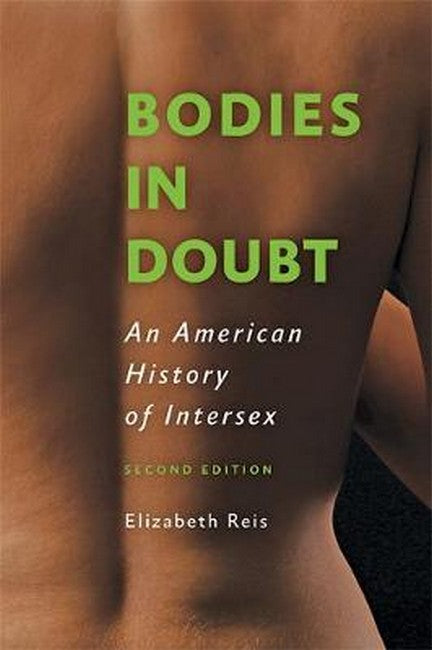In the summer of 2020, the Ann and Robert H. Lurie Children's Hospital apologized to their former intersex patients who endured early childhood surgeries "normalizing" the appearance of their genitals and agreed to stop performing such procedures until children were old enough to participate in decision-making. In Bodies in Doubt, Elizabeth Reis explains how we arrived at this extraordinary moment, tracing the changing definitions, perceptions, and medical management of intersex (atypical sex development) in America from the colonial period to the present. Reis argues that medical practice must be understood within its broader cultural context. Responses to intersex bodies, she explains, demonstrate how deeply physicians have been influenced by social anxieties about marriage, heterosexuality, and same-sex desire throughout American history, shaping bodies to fit social norms. Reis considers how the criteria and authority for judging atypical bodies changed, how the binary gender ideal and the concern over uncertainty persisted, and how processes for defining the very norms of sex and gender evolved. In this second edition, Reis adds two new chapters, a new preface, and a revised introduction to assess recent dramatic shifts in attitudes, bioethics, and medical and legal practices. Knowledge, discussion, and debate about intersex, she writes, have become more prominent in American public life. Human rights organizations have declared early genital surgeries a form of torture and abuse, and US state legislatures are considering laws to protect children from unnecessary and irreversible medical treatment. But doctors continue to offer surgical "repair," and parents continue to seek it for their children born with intersex. While many are hearing the human rights call-including some doctors persuaded by their adult patients' stories of unnecessary surgeries and the resultant psychological and physical harms-controversies persist, and Reis explains here why best practices in this field remain fiercely contested.

